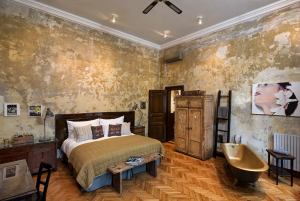In 1987 Budapest was added to the UNESCO World Heritage List for the cultural and architectural significance of the Banks of the Danube, the Buda Castle Quarter and Andrássy Avenue.
Budapest is the economic, historic, and cultural capital of Hungary, with approximately 2 million inhabitants and approximately 2.7 million visitors per year. Hungarians are proud of what their beautiful capital has to offer and of its contributions to European culture. They also take pride in their unique language which is very different from all other European languages.
While Buda has been the capital of Hungary – or that of the Osman-occupied territory – for the better part of a millennium, it has become a grand cosmopolitan city during the country’s fast industrialisation in the late nineteenth century. The population of 2.1 million in 1989 decreased formally due to suburbanization.
About
Budapest is the capital city of Hungary. With a unique, youthful atmosphere, a world-class classical music scene as well as a pulsating night life increasingly appreciated among European youth and, last but not least, an exceptionally rich offering of natural thermal baths, Budapest is one of Europe's most delightful and enjoyable cities. Due to its scenic setting and its architecture it is nicknamed "Paris of the East".







